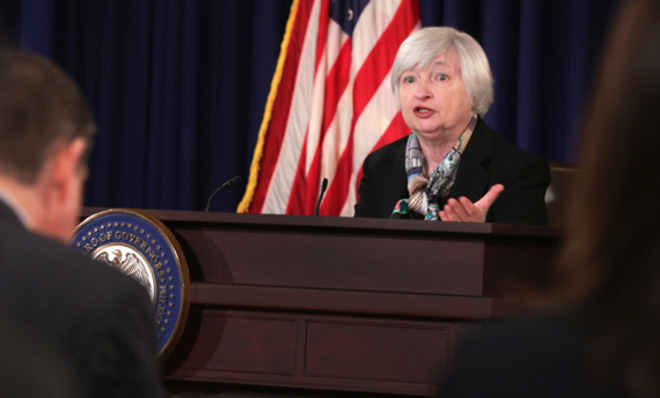How to make sure we never, ever, ever bail out Wall Street again
It's easy: Let the banks fail and give the money to American taxpayers instead


A free daily email with the biggest news stories of the day – and the best features from TheWeek.com
You are now subscribed
Your newsletter sign-up was successful
Are you still angry that Washington forced Main Street to bail out Wall Street during the Great Recession? Timothy Geithner can live with that.
In his new book, Stress Test: Reflections on Financial Crises, the former Obama Treasury secretary insists government needed to stop the panic by whatever means necessary. During a five-alarm inferno, the thinking goes, it's smarter to focus on extinguishing the blaze than punishing the arsonists. And to Geithner, dissenters are misguided purveyors of "Old Testament vengeance" and "moral hazard fundamentalists."
Geithner is only half right.
The Week
Escape your echo chamber. Get the facts behind the news, plus analysis from multiple perspectives.

Sign up for The Week's Free Newsletters
From our morning news briefing to a weekly Good News Newsletter, get the best of The Week delivered directly to your inbox.
From our morning news briefing to a weekly Good News Newsletter, get the best of The Week delivered directly to your inbox.
He's correct to assume that letting the megabanks collapse — and doing nothing else — might have invited a deflationary depression as bad as the one in the 1930s. Both innocent and guilty would have suffered. And America, like any modern democracy, doesn't really do mass suffering. So the politicians always blink. (Letting Lehman fail was the rule-reinforcing exception.)
But Geithner is wrong when he said, as he did to The New York Times, that Americans are "deeply confused and mistaken" if they think there was "a way to somehow protect people without doing things that looked like you were protecting the banks." Actually, there was an option that would have accomplished just that. There was a way to support Main Street, punish Wall Street, and avoid the terrible incentives for future recklessness that bailouts inevitably create.
Remember, what Washington did in 2008 was authorize the $700 billion Troubled Asset Relief Program. It eventually pumped some $400 billion of taxpayer dough into American financial institutions — whether they wanted the cash or not. The politicians could have let insolvent banks simply go bust. True, such a move would have hammered an already weak economy. To avoid a terrible collapse in spending and investment, however, Washington could have deeply cut taxes or sent tax rebates to households and businesses. How to pay for all those checks? Borrow the money from the Federal Reserve, which, after all, owns the printing presses. Fiscal stimulus meets monetary stimulus.
Some of the money would have been spent, some used to pay off debt, some saved. But the net result likely would have been a far shallower economic downturn, especially if combined with a clear and explicit Fed promise to support spending no matter what. Former Fed Chairman Ben Bernanke recommended just such a "helicopter drop" of money to boost the stagnant Japanese economy back in 2003. Too bad he didn't make the same case to Team Bush and Team Obama five years later.
A free daily email with the biggest news stories of the day – and the best features from TheWeek.com
And what about the banks? For starters, a more modest recession and faster recovery would have limited bank failures. And the assets of the ones that did sink could have been purchased by stronger remaining institutions. Indeed, Geithner writes that legendary investor Warren Buffett told him that without TARP, "everything would have crashed, and I would have been the first to buy." Regulators also could have loosened rules to make it easier for startup banks to replace the failed old ones.
The U.S. has experienced a financial crisis, on average, every decade or so for nearly 200 years. Odds are the most recent one won't be the last one. Forcing banks to maintain a much larger capital cushion would go a long way toward avoiding future disasters. But if Big Finance should stumble again, Washington should let it fall. Wall Street banks won't need a bailout, but their Main Street customers will.
James Pethokoukis is the DeWitt Wallace Fellow at the American Enterprise Institute where he runs the AEIdeas blog. He has also written for The New York Times, National Review, Commentary, The Weekly Standard, and other places.
